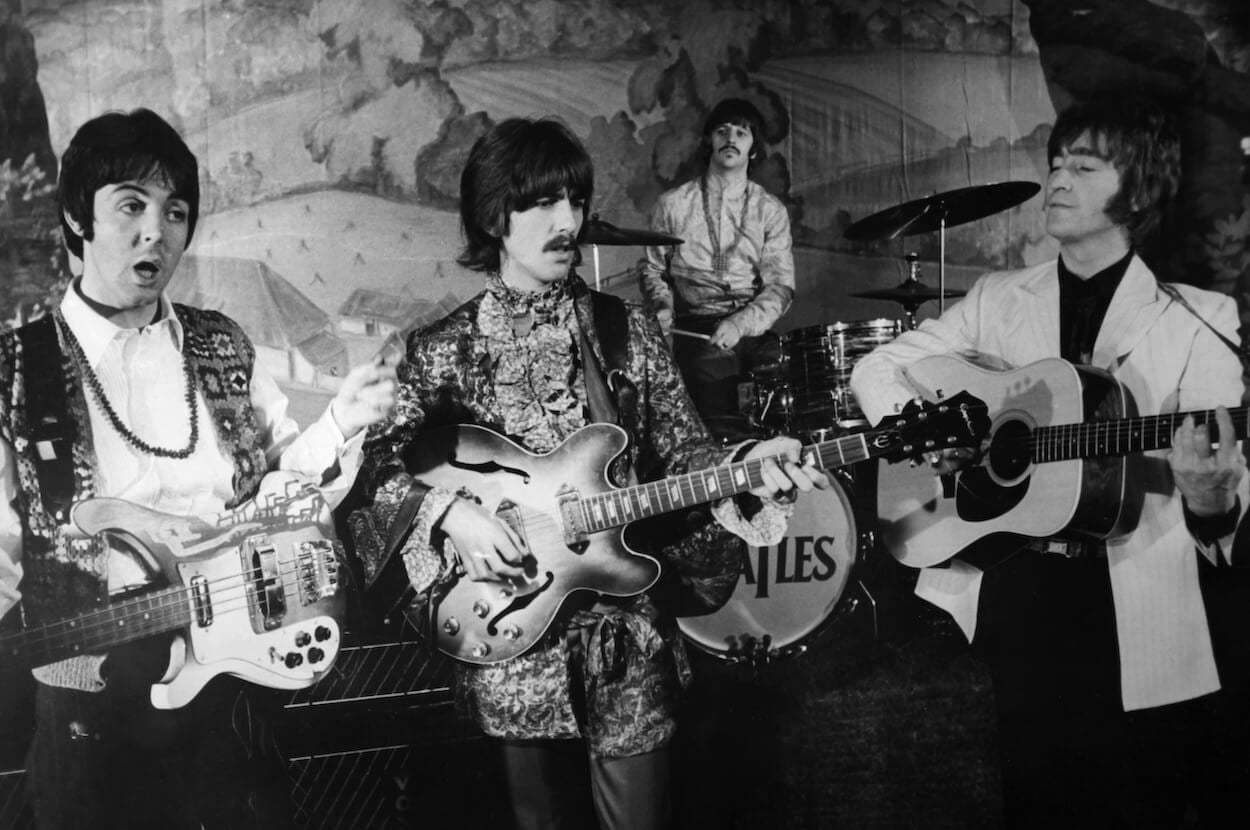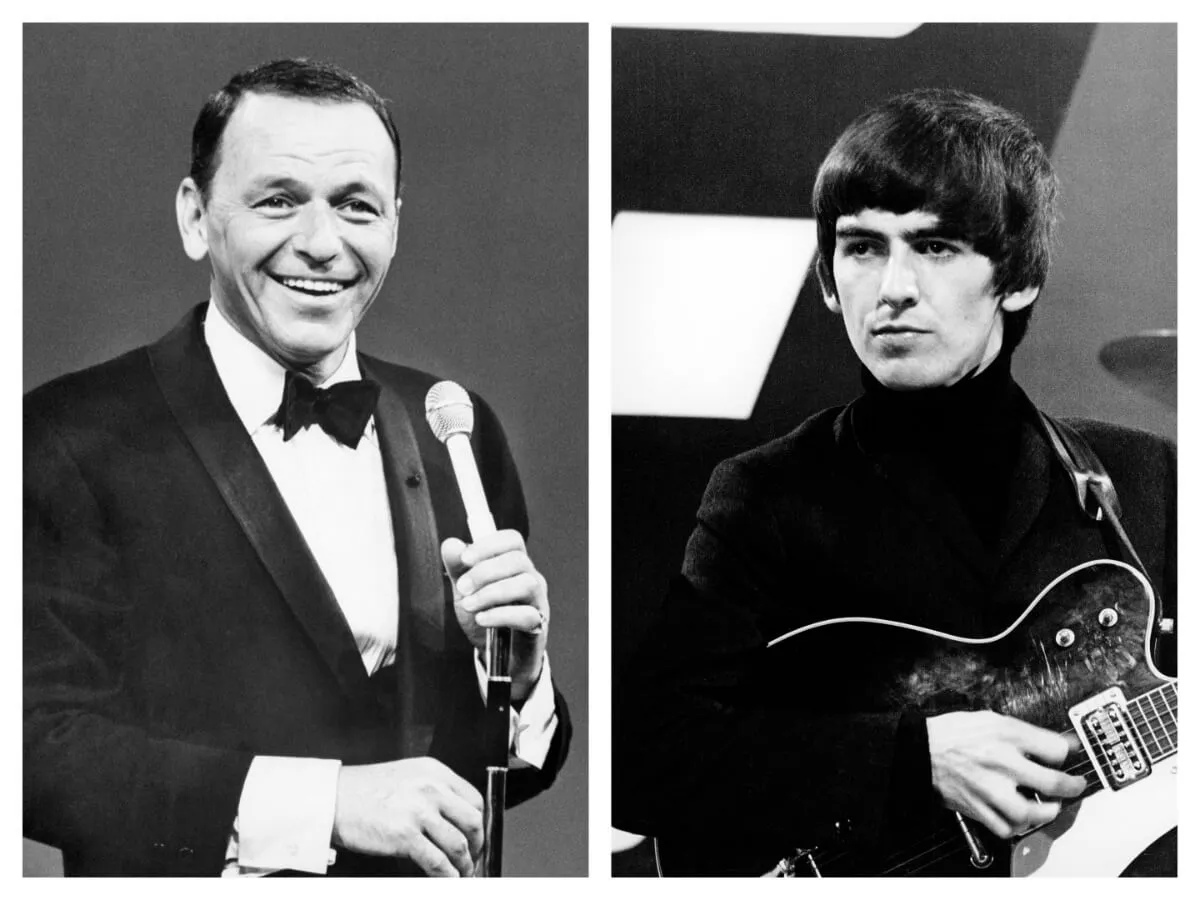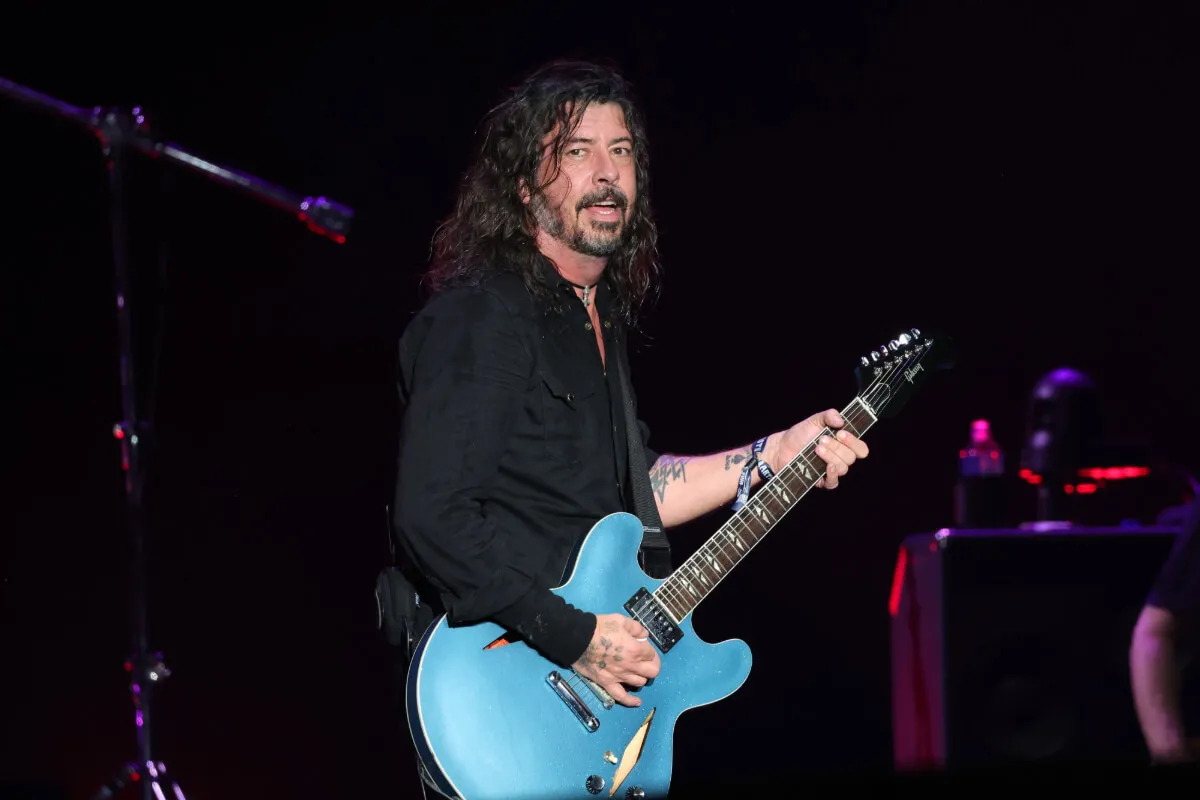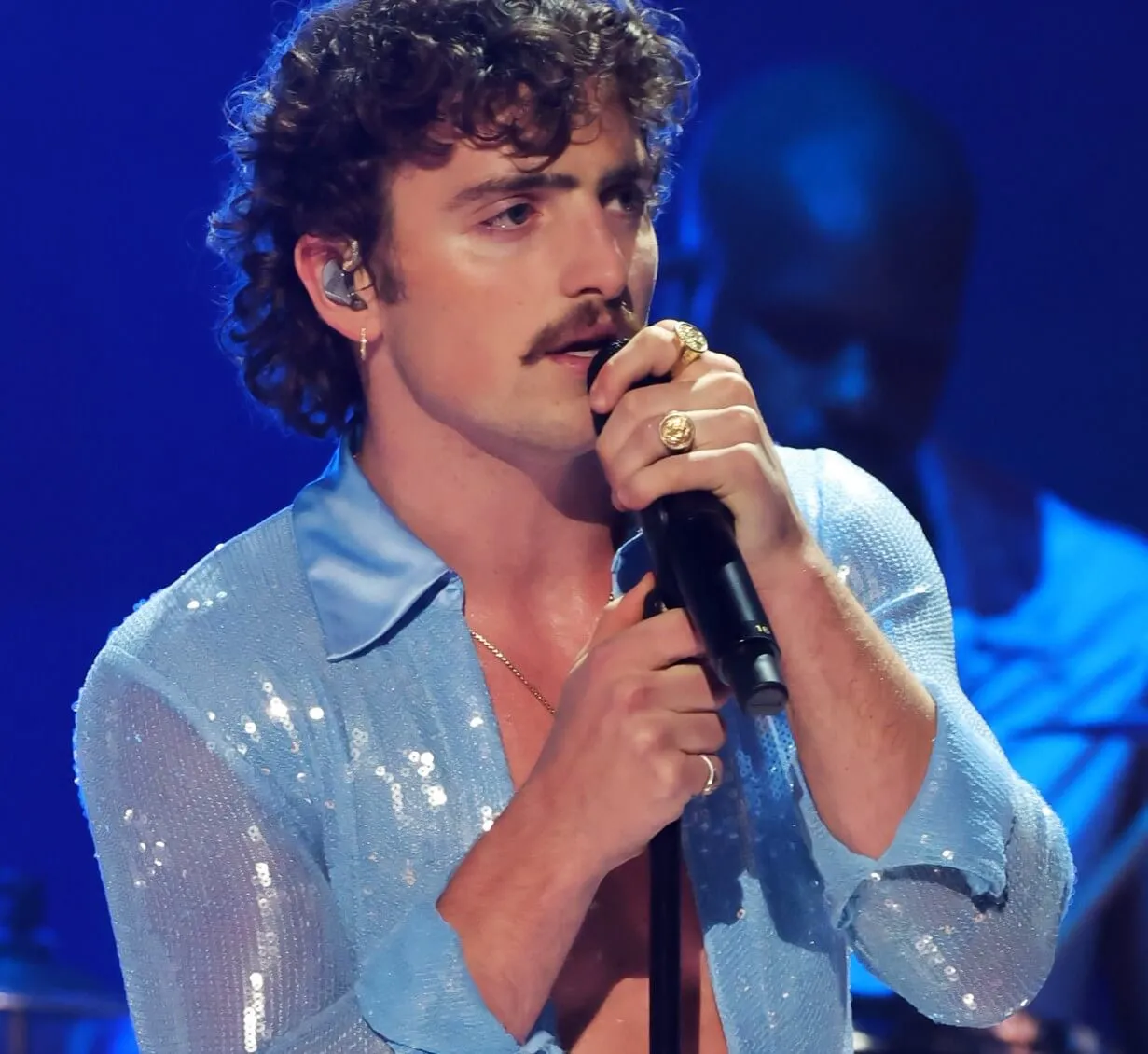
The Beatles Music Video Banned by the BBC
If it seemed like The Beatles could do no wrong during their career, that’s because it was pretty much the case. After some struggles with their earliest singles, their debut album, Please Please Me, rocketed to the top of the charts in England. (So did every studio album through Sgt. Pepper’s Lonely Hearts Club Band). Even their lousy A-side songs became hits. Still, The Beatles dealt with a few BBC bans, including their video for “Hello, Goodbye.”
Paul Mccartney’s talent couldn’t stop the BBC from banning The Beatles music video for ‘Hello, Goodbye’
Kenny Lynch, a musician who toured with the Fab Four in the early 1960s, called Paul McCartney and John Lennon idiots when they struggled to write a song. Soon after, he set a record by becoming the first person to cover one of their songs. He must have sensed what the future would hold.
Paul kept the hits coming with Wings and as a solo artist after he and John wrote many of The Beatles’ No. 1 songs. Over the years, the bassist proved his talents as a songwriter, multi-instrumentalist, and creative mind. He orchestrated the Sgt. Pepper concept and guided the band in creating the Magical Mystery Tour album and movie (for better or worse).
Paul’s talents didn’t extend to lip-syncing. The BBC banned the Beatles video for “Hello, Goodbye” from Magical Mystery Tour because it broke a rule about miming a musical performance (per Beatles Bible).
Perhaps even more embarrassing than having the video pulled from a planned Top of the Pops broadcast was the fact the group created a new version of the song to get around the miming ban.
None of the Beatles stood at a microphone in the video (see below). Paul and George Harrison plugged in their instruments, at least (John sported an acoustic guitar), but they clearly weren’t performing live.
Still, Paul’s lackluster lip-syncing abilities led the BBC to ban The Beatles’ music video for “Hello, Goodbye.” He lost the plot roughly 1:28 into the song during the “Why, why, why, why, why / Do you say goodbye, goodbye-eye-eye-eye-eye?” line. (His eyes grew wide as he realized he dropped the ball). By the end, when a throng of dancers joined the video, it’s clear he’s barely trying to sing the correct words. It also didn’t help that the mix intended for the BBC included maracas, but Ringo Starr didn’t shake them during the video.
Years later, John added it to his list of Beatles songs he hated. We’d guess the cheerful melody and repetitiveness drove him mad. Still, getting all dressed up for the video only to have the BBC impose a ban probably didn’t help.
Other BBC bans The Beatles faced
The BBC banned The Beatles’ promo video for “Hello Goodbye” because of Paul’s poor lip-syncing. It wasn’t the first or last time the Fab Four ran afoul of Britain’s broadcasting giant for seemingly ridiculous reasons.
The song “Being for the Benefit of Mr. Kite” received a ban for its lyrical reference to Henry the horse. The BBC believed it was a reference to heroin and banned the tune. The broadcasting company kept the Magical Mystery Tour track “I Am the Walrus” off the air because John mentioned a “pornographic priestess” while also singing the line “let your knickers down,” which seemed to be a sex reference. Later, the BBC banned “Come Together” for its reference to Coca-Cola. (The Kinks could sympathize — “Lola” was kept off the air for the same offense).
“Lucy in the Sky With Diamonds” never made it past the BBC censors, who banned it over supposed drug references. The same goes for “A Day in the Life” over its “I’d love to turn you on” lyric.
In between changing nearly everything about pop music, The Beatles faced several BBC bans, including for the lip-synced video for “Hello, Goodbye.”
For more on the entertainment world and exclusive interviews, subscribe to Showbiz Cheat Sheet’s YouTube channel.


